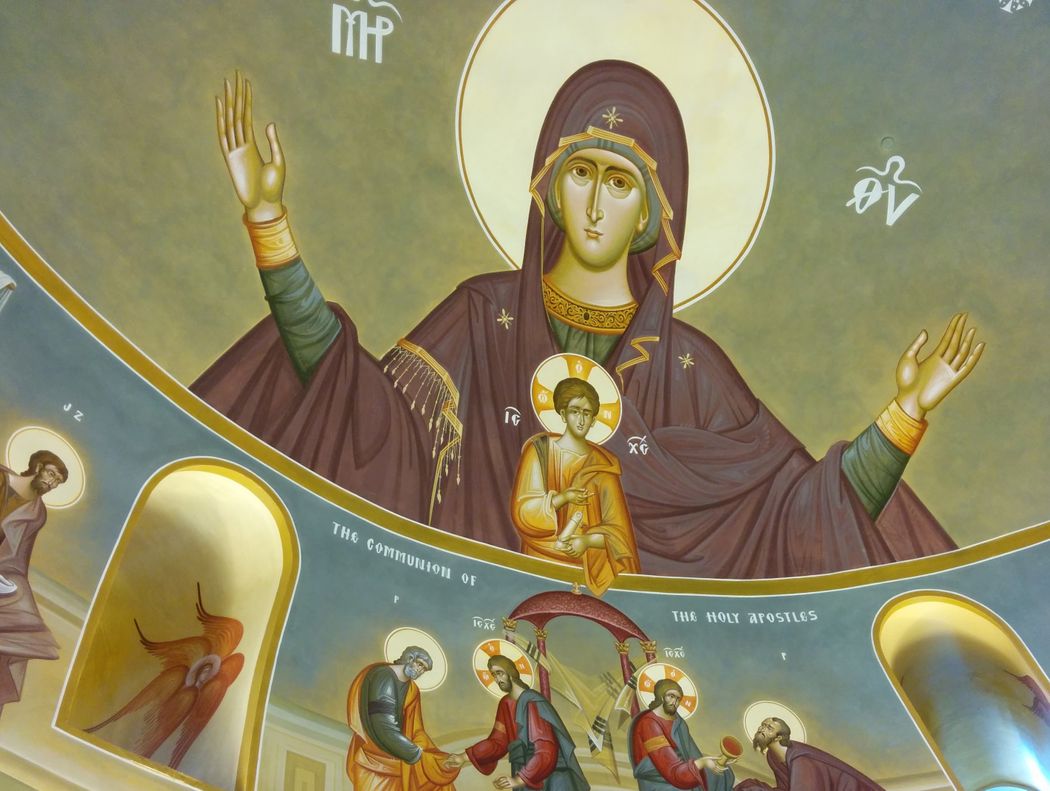Some call the Dormition of the Most-holy Theotokos our "Summer Pascha."
Having witnessed Christ honoring His mother by accompanying her soul into
heaven and raising up her body after her dormition, we now celebrate a
"Summer New Year," since the Church year begins on September 1.
What kind of resolutions do Orthodox Christians make at the beginning of a
new year?
The English word resolution derives from the Latin word solvere which means to
loosen, to set free. To embark on meaningful resolutions, then, we must first
identify what binds us, what makes us prisoners.
You are already set free? Wonderful! Glory to God that you are no longer
weighed down by anxiety, anger, or resentment; that you do not lust after
things or people; that you spend your days exercising love of God and neighbor,
in unceasing prayer; that you increase the talents given you by God for His
glory and the building up of His kingdom of which you are an inheritor; that you already enjoy the ineffable presence of the Triune God in your heart as a true
son or daughter of God by adoption.
If that does not sound like freedom to us, then we have not yet identified our
true captors. We presume to be physicians for ourselves and others, when we
cannot even diagnose our own disease! The deadliest disease and the most
vicious captor is the one that introduced corruption and death into this world:
sin.
But God will punish me for my sins, and thus I must appease this wrathful God
by hating myself and following His rules; this is the line of thinking many of us
espouse, openly or implicitly. The author of lies has enjoyed this deceptive
reversal for generations, because it makes God our captor and sin our liberator;
God to be avoided and sin to be enjoyed as "being ourselves." The passions—
our attachment to sin—weigh us down, and our habitual sins keep our souls
sick and the eyes of our hearts darkened, and if all left unhealed we will not
only die in body, but our souls will experience eternal death.
Our first resolution, then, must be to acknowledge that we need deliverance
from sin which perpetrates death of both our soul and our body. Accepting this,
our next resolution—that which will free us—must be repentance. Repentance
is not a simple "I'm sorry" nor is it a process whereby we somehow trick God
into forgetting our wrongdoings. Repentance is metanoia, a transformation of
the heart and our whole being, directing our gaze back to our Creator, from
Whom we received not only entrance into this world, but by Whom we are
sustained throughout our earthly lives and Who has promised us true comfort
and joy in Him for all eternity. Not sinning is crucial, but in order to be saved, we
need God living within us. Through prayer both privately and together in
Church, through fasting, through works of love, through resisting temptations to
overcome the passions, through following Christ's commandments, through
partaking of the Holy Mysteries, in all things welcoming God's grace into our
hearts, our efforts to repent prepare our hearts for God's healing presence, and
with healing ultimately a release from sin and death.
May we make the new Church year one that renews us by God's grace and our
efforts.

